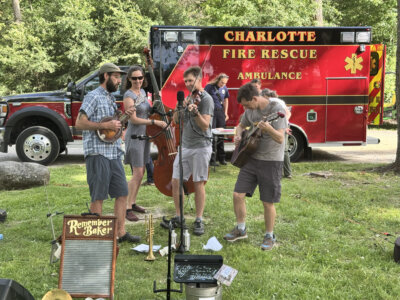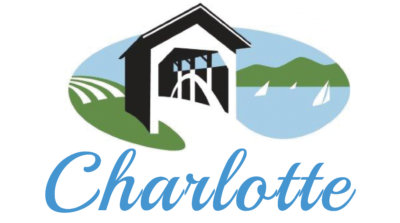Here’s the skinny on the Town Meeting Day ballot
Let’s start this story about voting this March like Jeopardy, giving the answer first.
Here’s Common Connections for $200 — and remember you need to phrase your answer in the form of a question — Mark Stewart Greenstein, Jason Michael Palmer, Dean Phillips, Cenk Uygur and Marianne Williamson.
Surely everyone clicked their buzzers simultaneously, rushing to say: “Who are Pres. Joe Biden’s Democratic opponents on the Vermont primary presidential ballot?”
March 5 is Super Tuesday, when 14 other states and one unincorporated territory hold their primary elections. Technically, it’s Super Tuesday in Vermont also, but here in the Green Mountain State, the day is more popularly known as Town Meeting Day.
This year, Super Tuesday isn’t so super since it is pretty much a foregone conclusion that Biden will be the Democratic candidate and Donald Trump will beat Ryan L. Binkley, Chris Christie, Ron DeSantis, Nikki Haley and Vivek Ramaswamy on the Vermont ballot to be the Republican nominee.
After a recent decision by the selectboard to cancel a pre-Town Meeting Day town meeting on March 2 (the Saturday before traditional Town Meeting Day), where residents would have gathered in person to voice vote on some issues like the budget, all voting now will be by Australian ballot on the following Tuesday, March 5, this year.
But, voting on Town Meeting Day in Charlotte could have some of the mystery that might make the election more super here. The biggest voting cliffhanger will be whether residents favor changing the town’s governing structure to a town manager or decide to stay with a town administrator.
This vote may be confusing because Article 6, the article that, if residents approve it, would create a town charter for Charlotte, says, “Shall the voters authorize the town to submit to the General Assembly of the state of Vermont a proposal to adopt a municipal charter which contains the following sections?”
Six sections follow — corporate existence, general provisions, town manager/road commissioner, separability, amendment and effective date. It goes on to say that the charter proposal is available for the public to see at the town clerk’s office and can be requested by the public. The charter proposal can also be seen on the town’s website and it will be posted at town hall on Town Meeting Day.
The charter proposal does not make things much clearer. There is nowhere in the proposal that specifically says that voting for the charter will be voting for the town to switch to a town manager, although it does outline the duties of a town manager and a road commissioner.
Charlie Russell, who is part of the group of residents that circulated the petition that required the town to put the charter proposal on the ballot, confirmed that voting for Article 6 is voting for changing to a town manager and admitted it could be confusing.
Two articles that could spur a bit of thrilling anticipation of voting results are articles 2 and 7. These will probably create a lot of interest because both of these concern the town budget.
Article 2 is the selectboard’s budget. Voters are asked on this ballot item if they approve of a little more than $3.25 million in town expenses, of which $1.54 million is proposed to be raised by property taxes and more than $1.71 million is proposed to be raised by non-tax revenue. Non-tax revenue is money a town collects from sources other than property tax, like money collected from building permit fees or for parking at the town beach.
The selectboard’s approved budget would result in a tax rate of .1835 for fiscal year 2024-25 and the tax rate for this year is .1804, so it’s essentially a flat rate from this fiscal year to next.
At the Jan. 29 selectboard meeting, when the budget that will be submitted to voters on Town Meeting Day was approved, chair Jim Faulkner lauded the process that had resulted in this rate, because when the board started the budget process, the town was looking at a tax-rate increase in double digits.
He was pleased that the construction of a new garage with solar panels had not driven the town’s regular budget up. The proposed budget includes $160,000 for bond payments on the garage and the solar panels, town clerk Mary Mead said.
“You’ve done a really good job. The increase is miniscule. And I honestly just can’t look at this and see where you would be taking anything off or why you would,” Mead said.
Article 7 asks if voters will authorize the town to get a bond or note for not more than $365,000 for a new ambulance for Charlotte Volunteer Fire and Rescue. If approved the ambulance that would be financed for not more than 10 years.
Normally, the town and school officer ballots inspire some interest, but this year there is only one position with an announced opposition candidate. Natalie Kanner has qualified to run against incumbent Louise McCarren for a two-year term on the selectboard. Other than that, the positions to be voted on are for unopposed incumbent candidates or positions that no one is running for.
There are auditor, cemetery commissioner and trustee of public funds positions open, but there are no candidates running. If you are looking to give back to your town, these could be good opportunities to try getting elected by running unopposed as a write-in candidate.
Matthew Bijur is running for the library trustee and Jessie Bradley for cemetery commissioner as first-term candidates.
Incumbents running for re-election include Frank Tenney for selectboard; Meghan Metzler for one of Charlotte’s positions on the Champlain Valley School District board; Mary Mead for town clerk, treasurer and delinquent tax collector; Hugh “Junior” Lewis for road commissioner; and Maurice “Mo” Harvey for one of the three positions as a trustee of public funds.
On the Champlain Valley School District ballot, voters in the district’s five towns are asked to approve expenses of just over $105,800,000 for the next school year and to issue grants or notes of $395,000 to buy three school buses and of $3.5 million for school building improvements — $1.45 million at Charlotte Central School, $50,000 at Champlain Valley Union High, $1.9 million at Shelburne Community School, $50,000 at Williston Central School and $50,000 at Allen Brook School.
The school district vote got a bit confusing on Monday after Superintendent Rene Sanchez sent out this message:
“The Champlain Valley School District’s board of directors approved the proposed 2024-25 budget to present to voters on Town Meeting Day ballots at the Jan. 23, 2024 school board meeting. The proposed budget is now a warned article on the ballot.
“However, the Vermont legislature is currently considering changes to Act 127, the new education funding law. Their review may require us to modify our proposed school district budget and possibly when we vote on the upcoming school year’s ballot articles.
“We wanted to let all of our community members know that we are aware of this and will do our best to keep you informed as we learn more. We will reschedule community presentations about the proposed budget and will update associated materials when we have clarity.”
Stay tuned.
The Final Jeopardy category is Absentee Voting.
The answer is 7 p.m., March 5.
The correct question is: “What is the deadline for turning in an absentee ballot?”
If you would like to vote by absentee ballot, you can pick up a ballot at town hall. You can vote when you go to pick it up or you can mail it in.
Related Stories
Popular Stories
If you enjoy The Charlotte News, please consider making a donation. Your gift will help us produce more stories like this. The majority of our budget comes from charitable contributions. Your gift helps sustain The Charlotte News, keeping it a free service for everyone in town. Thank you.
Andrew Zehner, Board Chair







